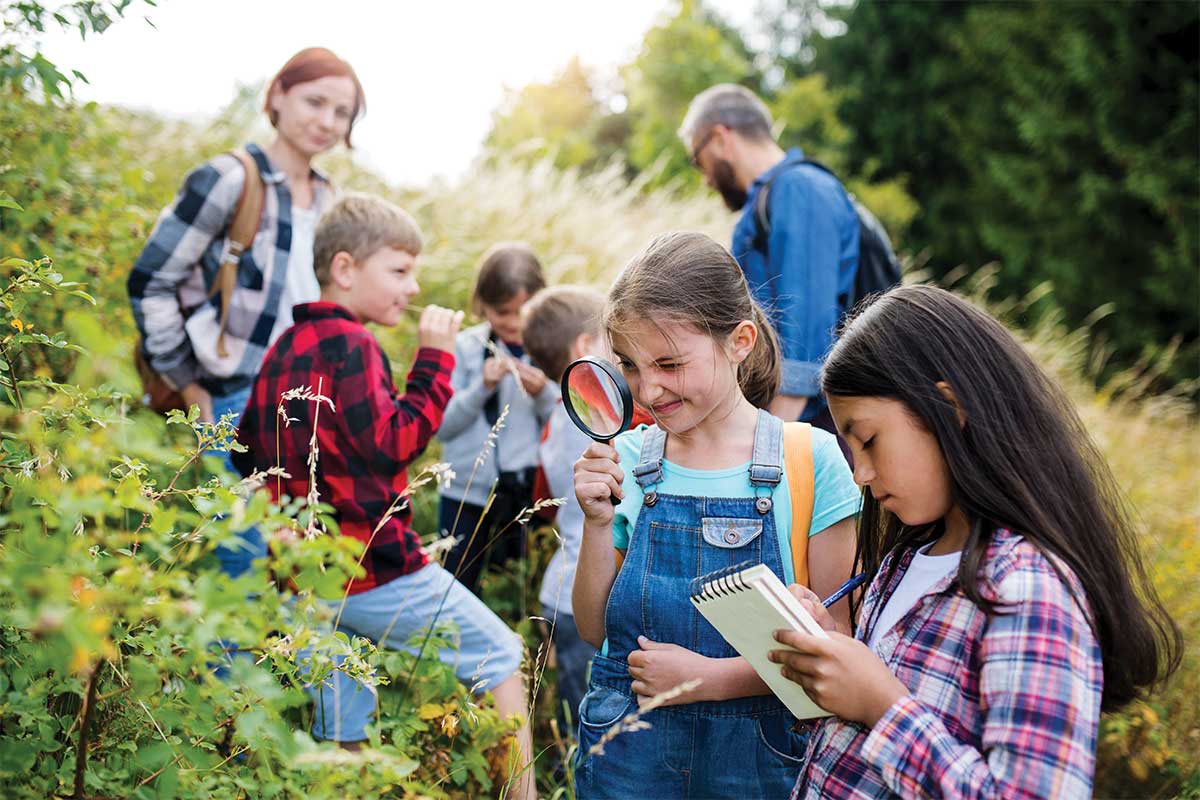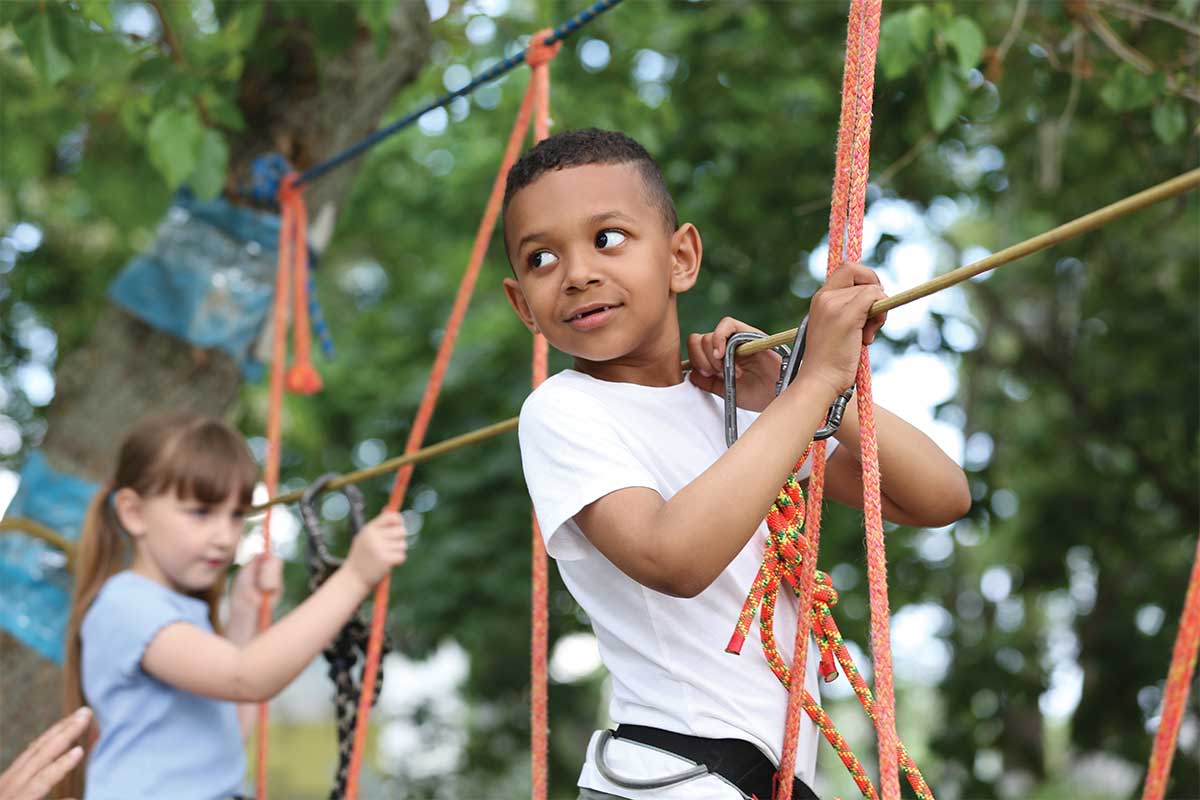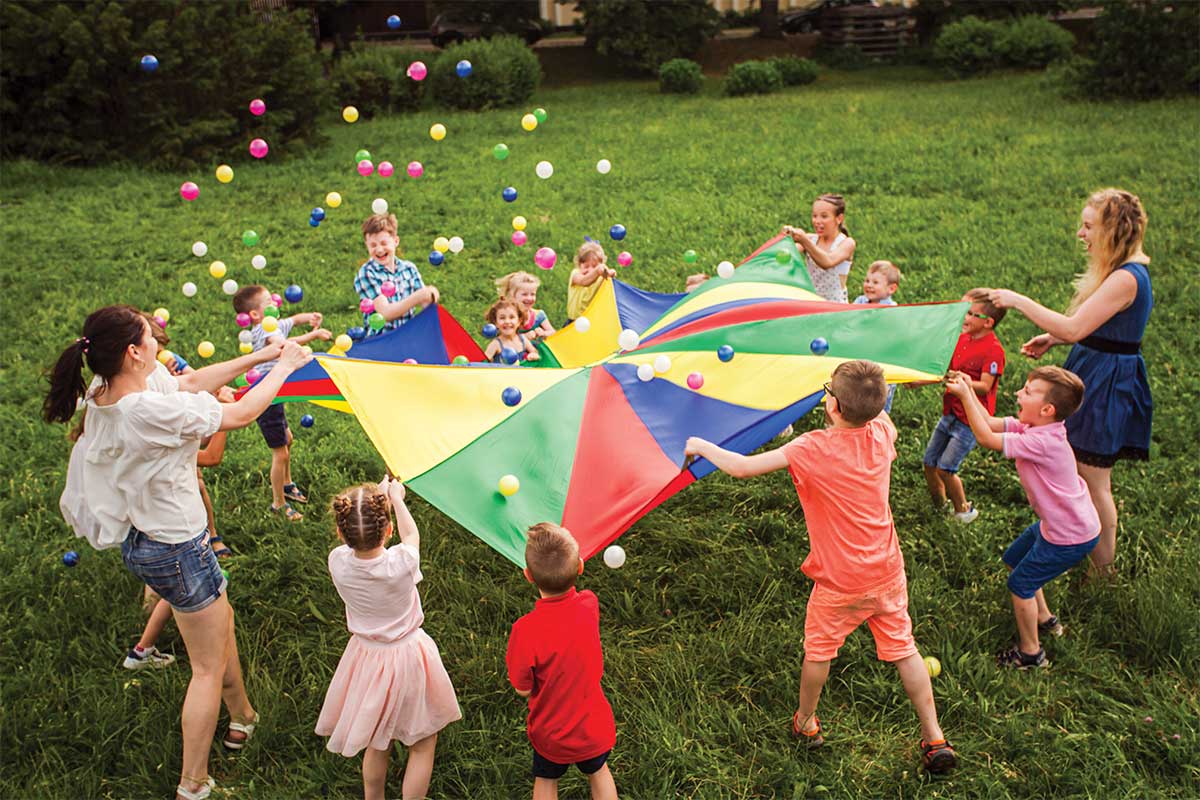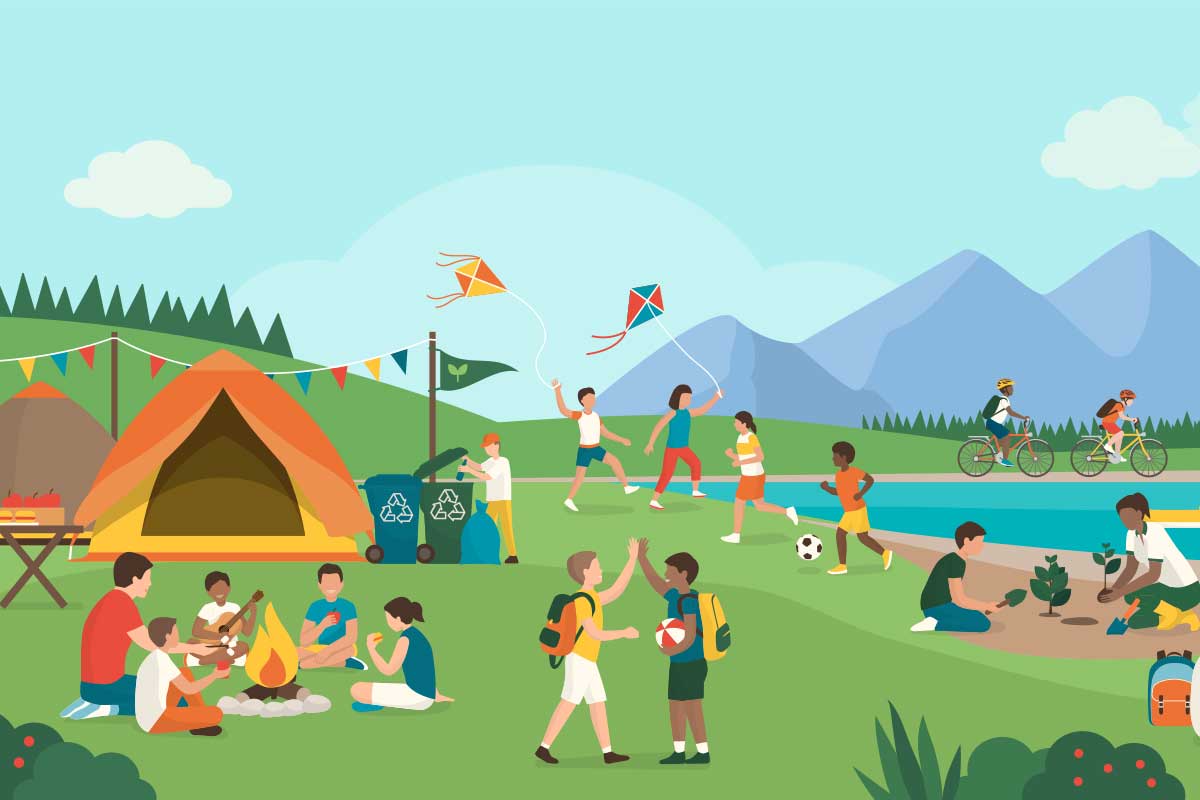It’s never too early to start thinking about summer camp for your child — in fact, March is the perfect time. It may seem like a daunting task, but once you get down to the “ABCs” of it, figuring out the right fit can be an exciting project for both your youngster and you. We spoke to area camp directors and leaders to get some of their best advice for finding the perfect summer program for your son or daughter, as well as all the logistics you need to know.
Advice from Summer Camp Leaders
John Blevins, assistant director for recreation for the Prince William County Department of Parks, Recreation & Tourism, suggests talking to your kids about what they’re looking for in a camp early on. “Summer camp is about the opportunity for children to have fun in a safe, friendly, welcoming environment; learn new activities; be active; and make many new friends,” he says. “I encourage parents to have that conversation with their children to see what they want as a camper and what you want as a parent.”

Elizabeth Mayer, director of summer programs at Sidwell Friends School in DC, says summer is a great time to let your child dive deeper into something they love to do. It can also be an ideal opportunity to let them try something new. She advises finding a summer program that allows children to do both.
“Your child will hopefully feel comfortable in a familiar location to take risks and try something new,” she says.
For children under age 6, Melissa Rohan, president and founder of Waterfront Academy in Southwest DC, suggests starting with basic objectives, like the amount of care needed, your child’s specific interests, and location. However, when a student is older, sometimes choosing a summer camp can become a fun family activity.
“Have a conversation regarding summer camps and get [your child’s] input on things like friends, activities, themes, and interests, which are probably going to be their top priorities,” says Rohan, who is also the founder of Camp Aventura, a Spanish-immersion summer camp in DC for children ages 3 to 12. “Ultimately, make sure the camp is also satisfying your objectives.”
Most of all, parents just want to know that their child is in a safe place with qualified, caring staff. “They want their child to come away from the camp with new friends, new interests, new skills, and lifelong memories,” says Blythe Russian, NOVA Parks’ park operations superintendent.
NOVA Parks’ specialty camps are outdoor-heavy, offering a variety of traditional day programs with a focus on nature. They take place in botanical gardens, nature centers, and preserves. Campers can choose from Camp Overlook at Arlington’s Potomac Overlook, Camp Grow at Meadowlark Botanical Gardens in Vienna, and the new Camp Winkler at Winkler Botanical Preserve in Alexandria.
Jeff Shor, director of marketing for Sportrock Climbing Centers, which has locations in Alexandria and Sterling, says the biggest factor parents should consider when choosing a summer camp program is how engaged their child would be at a particular camp.
“Summer should be about trying new things, stepping outside of your comfort zone, and discovering new ways to interact with the world,” he says. “Sportrock Summer Camp programming does just that, with opportunities to adventure both indoors and outside.”
Campers at Sportrock can learn both indoor and outdoor rock climbing from a beginner level through a more advanced skill level.

Budget, Backup Plans, & Other Basic Things to Know
An important bit of information to remember is that camps will often offer discounts at various times of the year, so keep an eye out for those if you are interested in a specific summer camp. For example, Rohan mentions a big Thanksgiving discount Camp Aventura offers that parents are always eager to take advantage of.
Andrea Dobo, assistant director of summer programs for The Madeira School in McLean, advises parents to consider the competitive demand for local camps this summer.
“Set an alarm for registration time, and make sure you have a good internet connection, and your payment methods are easily accessible,” she says. “It will be easier to do it on a laptop or computer than a phone.”
It may sound obvious, but be sure to make note of what camps and sessions you’d like to sign up for before you log in to register.
“So many families want to send their children to camps, and it could be frustrating if you do not get your first choice of dates,” Dobo says. “If you don’t get your first choice, be sure to have a backup plan.”
Three camps run out of Madeira including Camp Greenway, a co-ed day camp; Girls First, a residential or day camp for girls; and co-ed equestrian camp Riding Workshop. Camp Greenway is celebrating 50 years this year.
Amanda McCullough is the owner of Cake Time in Chantilly, a cake decorating shop that offers summer camps. She loves to book her three children in their summer camps early, and with friends.
“Camps are a great way to meet new friends, but your kids will be super excited for a camp knowing their friends will be there, not to mention the added benefit of carpooling, too!” she says.
Cake Time’s summer camps are probably unlike any other your child has attended. McCullough says that if your child loves creating, especially in the kitchen, they will thrive at Cake Time. Each week, the camp has a different theme, and each day, campers decorate something delicious.
“They’ll bring some home, if they aren’t gobbled up at camp,” McCullough laughs.

The Best Camp Vibe for Your Child
One big decision to make is whether a full-day or a partial-day camp will best suit your child.
If your camper gets homesick (or you are worried about missing them terribly), Dobo says some overnight camps offer special photo portals where parents can view photos of campers every day. Options like these may help those trying sleepaway camp for the first time.
For day camps, parents often get the chance to ask for updates on their kids during pickup.
Parents will need to understand and be made aware of camper-to-counselor ratios, safety measures, and what types of activities kids will partake in. For example, some camps are craft-heavy or offer field trips, while some are geared toward a specific interest.
Rohan says that parents should remember to ask logistical questions for summer camps to better simplify their families’ routines. Asking about pickup, drop-off, lunch, and the daily schedule is important, she says. Camp Aventura, for example, has low camper-to-counselor ratios and all staff are background-checked, certified, and have plenty of experience with children. The staff also goes through a week of training regarding expectations, policies, and procedures.
If your child would rather have multiple experiences during their time off from traditional schooling, Mayer’s Sidwell Summer offers a variety of programs. “Campers could come to Sidwell Summer for nine weeks and do nine different camps, ranging from robotics and coding to soccer camp, machine sewing, tennis camp, and woodworking,” she says.
Sidwell’s programs are offered at one location with the same carpool systems and staff, making it easy for parents to have a “one-stop shop” with fewer week-to-week transitions.

Camper to Counselor: When to Make the Transition
Finally, if your child is getting older, a looming decision could be making the transition from camper to counselor.
“Transitioning from a camper to a camp counselor is definitely a learning experience, but also very rewarding,” says Prince William County’s Blevins. “Typically, experienced campers are able to use some of their own past camp experiences and transfer that to a camp counselor role. Robust training programs are offered to help set staff up for a successful summer program.”
Mayer stresses that there is value both in being a camper and in participating in a counselor-in-training program. It is ultimately up to the child to decide if they are ready to shift roles.
“Transitioning from camper to counselor-in-training or counselor can be a big jump for many, and when to do it varies by individual,” Mayer says. “Staying at camp as a camper and not enrolling in a CIT program doesn’t mean you can’t be a counselor another summer.”
She says qualities that Sidwell looks for in counselors for its specific camps include being able to have fun and participate in various camp activities with your campers; being able to adapt to change (as no two days at summer camp are the same); and taking ownership of your duties.
“Campers can tell when a staff member is invested in their work,” she adds.
This story originally ran in our March issue. For more stories like this, subscribe to Northern Virginia Magazine.





